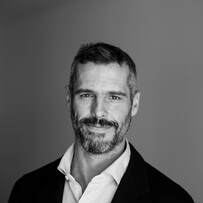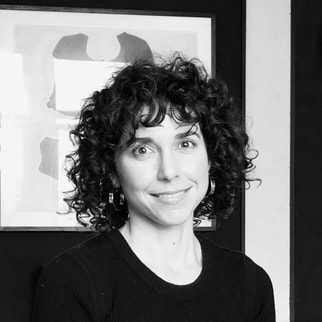 Mettle Health’s B.J. Miller. Courtesy image.
Mettle Health’s B.J. Miller. Courtesy image.
When her mother got sick and passed away, Dolan found herself overwhelmingly drawn to hospice work, eventually becoming the manager of patient care support services at Hospice by the Bay.
“I just adored everything about it – the people, the mission, the work,” she says.
One of the Hospice physicians brought in Dr. B.J. Miller, a prominent thought leader in the palliative care field, to an event there, and as Dolan learned more about Miller and watched his 2015 TED Talk (see below), which has garnered nearly 7.5 million views, she was completely blown away.
The 19-minute talk begins with Miller taking the stage and unmistakably missing three limbs, the result of being electrocuted in college when he and some friends were climbing on a parked commuter train.
“We all need a reason to wake up,” Miller says at the outset of the talk. “For me, it just took 11,000 volts. That night began my formal relationship with death – my death – and it also began my long run as a patient.”
As a hospice and palliative medicine doctor, Miller has seen care both as a patient and as a physician. Miller notes that the American healthcare system has “more than its fair share of dysfunction – to match its brilliance, to be sure.”
The healthcare system’s flaws are the result of bad design, he argues, and “nowhere are the effects of bad design more heartbreaking, or the opportunity for good design more compelling, than at the end of life where things are so distilled and concentrated – no do overs.”
“My purpose is to reach out across disciplines and invite design thinking into this big conversation. That is, to bring intention and creativity to the experience of dying,” he adds. “We have a monumental opportunity in front of us – before one of the few universal issues as individuals as well as a civil society – to rethink and redesign how it is we die.”
 Mettle Health’s Sonya Dolan. Courtesy image.
Mettle Health’s Sonya Dolan. Courtesy image.
Dolan reached out to Miller and offered to help. “I love hospice so much but they are so bogged down with electronic medical recording – they don’t have the time to advocate for what’s most important,” she says. “They are just trying to provide the best care possible. I saw B.J. as an opportunity to work with someone changing the conversation in this country.”
Dolan left Hospice by the Bay four years ago to help Miller write A Beginner’s Guide to the End (Practical Advice for Living Life and Facing Death), which the Washington Post called “A gentle, knowledgeable guide to a fate we all share” and “the first and only all-encompassing action plan for the end of life.”
To put an actual practice behind what he preaches, Miller left his position as a doctor and assistant professor at UCSF last summer to launch Mettle Health, a startup to provide people a safe space online to discuss life, death and everything in between, with Dolan serving as his director of operations.
Other than being an utterly fascinating approach to an issue that will, quite literally, touch all of us many times throughout our lives, why are you reading about all this on the Enjoy Mill Valley Blog?
Well…trees.
Miller moved to Mill Valley several years ago, drawn by the feeling of being surrounded by nature and being able to look out his window and see the gorgeous hills and trees with hawks swirling around above – that ability of nature to soothe the beast.
Mettle Health is a virtual practice, but its physical imprint is in the 94941.
Miller and Dolan distilled Mettle Health’s mission down to providing virtual telehealth palliative care online for people, both caregivers and patients – “ICU nurses and doctors and all the people frantically running around right now without a moment to breathe,” Dolan says, noting that they have approximately 120 clients so far.
In the short span since they launched, Dolan says they realized that approach didn’t match their bold ambitions of making an impact beyond one-to-one interactions.
They’ve begun to connect with skilled and residential nursing facilities and how they can provide better care – “spreading the gospel of palliative care,” Dolan says.
Miller is focused on optimizing the care, while Dolan and her team are thinking long-term. “How to make this a sustainable business and grow it appropriately so that we can offer it across the U.S. – anybody who wants this should be able to get it.”
“Palliative care should just be healthcare – it shouldn’t be a subspeciality,” Dolan adds. “What do we need to do to get to that place?”
A few things, she says. Investment, for one, so that they can grow the business and its footprint in a measured, mindful way. But it’s also about policy and getting enough people to demand that palliative care is reimbursable.
“There needs to be a shift, and we want to be part of making that shift happen.” Dolan says.
